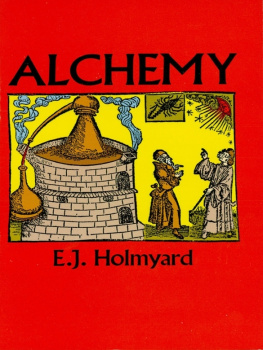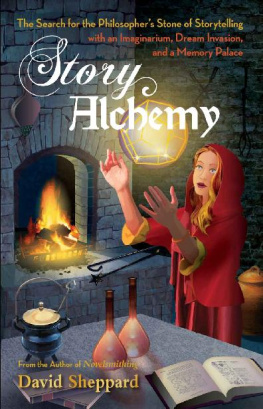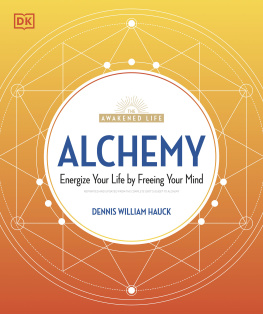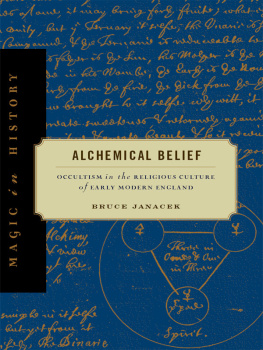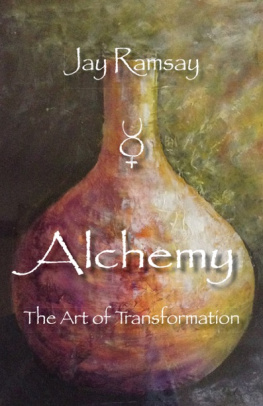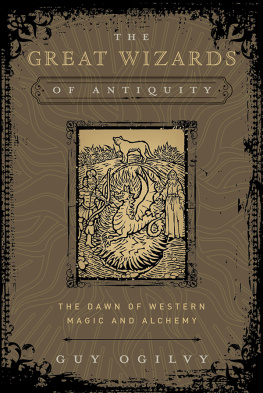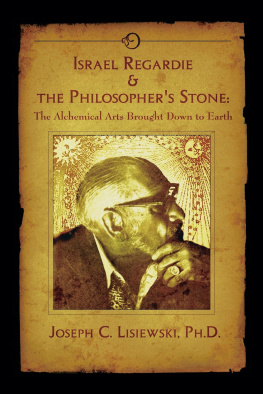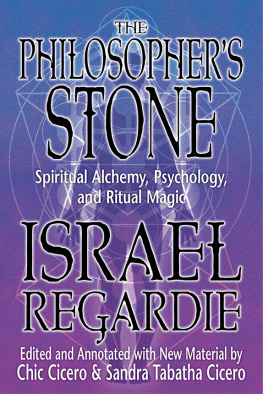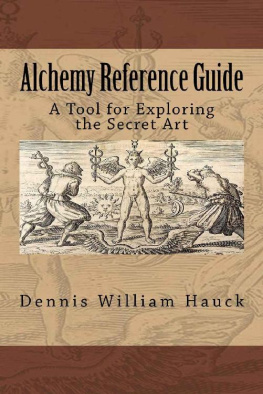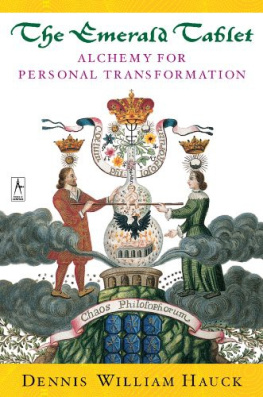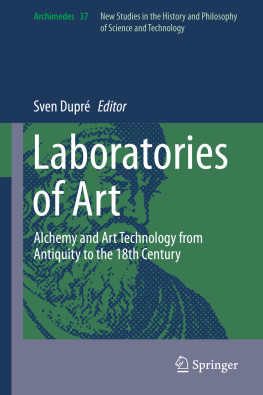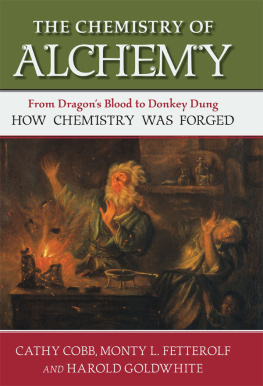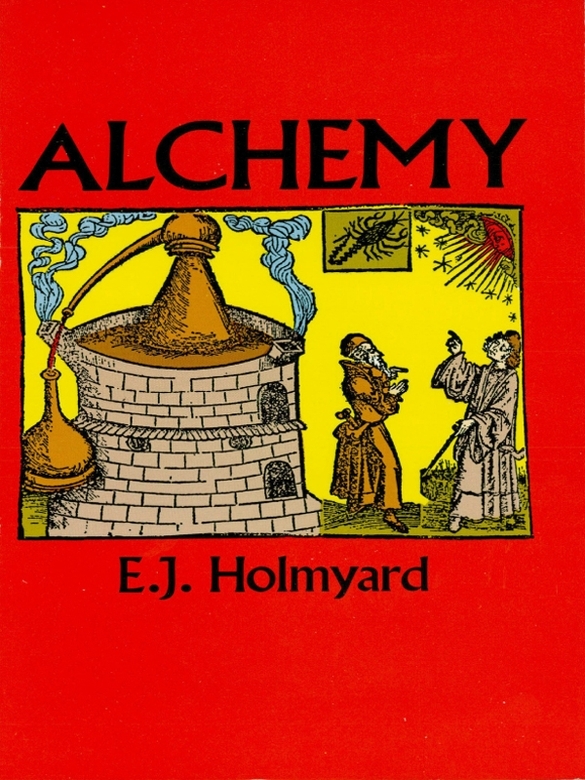EPILOGUE
A FTER the Royal Societys investigation of James Prices assertions, no learned scientific body has been willing officially to notice alchemical claims. By the end of the seventeenth century a new chemistry had begun to take shape, in which the basic conceptions and theories of alchemy had no part. The founder of this rational system, from which our science of chemistry has arisen, was the Hon. Robert Boyle (1627-91), who in 1661 published his literally epoch-making book entitled The Sceptical Chymist. In this book he struck at the root of all alchemical speculation by denying that the four Aristotelian elements had any right whatever to that description. Elements, he said, should be regarded as primitive and simple, or perfectly unmingled bodies; which not being made of any other bodies, or of one another, are the ingredients of which all those called perfectly mixt bodies are immediately compounded, and into which they are ultimately resolved... I must not look upon any body as a true principle or element, which is not perfectly homogeneous, but is further resolvable into any number of distinct substances. In other words, chemists should regard as elementary all those substances that they have not yet been able to split up into two or more constituents, and should not limit themselves by any preconceived notions of the number of these elements. If a substance is undecomposable it is to be considered an element, and it will retain that status for just so long as it withstands the efforts of chemists to decompose it.
The publication of The Sceptical Chymist was the death-warrant of alchemy, though, as we have seen, it survived in apparent vigour for another century. Boyles demolition of the four elements was followed about eighty years later by Joseph Blacks introduction of quantitative methods in chemical research, and not long afterwards by Priestleys discovery of oxygen and Lavoisiers elucidation of the composition of air and water. A chemical revolution had taken place, and was finally established by Daltons atomic theory published in the opening decade of the nineteenth century. Chemists now had in view wider and more promising fields than those cultivated without success by the alchemists. Yet it must be remembered that to the alchemists was due much of the practical chemical knowledge upon which scientific chemistry was based; and until the reorientation initiated by Boyle there was nothing strange or inconsistent in the idea that one metal might be converted into another.
Perhaps we may leave the last words to Boerhaave (1668-1738), a Dutch chemist and physician who, by his renown in Europe and by the extent of his knowledge, by himself alone was worth almost a whole academy. In his New Method of Chemistry he wrote that if he were asked his opinion about the philosophers stone,
I should answer, that the wise Socrates, after reading a most abstruse book of Heraclitus, being askd what he thought of it, replied, that where he understood it, he found it excellent, and believ d it to be so in those other parts he could not comprehend, which required the greatest penetration to come at. So wherever I understand the alchemists, I find them describe the truth in the most simple and naked terms, without deceiving us, or being deceived themselves. When therefore I come to places, where I do not comprehend the meaning; why should I charge them with falsehood, who have shown themselves so much better skilld in the art than myself; from whom I have learnt many things, in those parts of their writings where they thought proper to speak plain? ... I therefore rather lay the blame on my own ignorance than on their vanity. Yet I have often doubted, upon reading their secrets, whether these skilful persons, after they had discovered so many extraordinary things by naked observations, might not by a too great quickness of apprehension anticipate, and relate things for facts, which they conclude might be done; or even must of necessity have been done, if they had persisted in the pursuit. Tis certain a very grave alchemist, Alexander Suchthen [Seton], a disciple of Paracelsus, and a zealot in defending his doctrine, had tried so many things to so little purpose, that he concludes, at the end of his treatise of antimony, that all the philosophers, the principal of whom he there recites, had died before they brought their speculations to an issue. If this be the case, which I shall not pretend to determine, we are nevertheless exceedingly obliged to them for the immense pains they have been at, in discovering, and handing to us, so many difficult physical truths: Insomuch, that Lord Bacon justly compares them to a father, who on his death-bed informd his lazy sons, of a sum of money which he had hid underground in his garden. After his death they went to digging, in hopes of finding the treasure, and tho they missed their aim, for in reality there was none hid, yet they sufficiently enrichd themselves, by the large crop which the ground, in consequence of this tillage, produced. Thus much I have long ago had a mind to say, concerning the knowledge of the true alchemists in physics; lest such skilful artists should be condemnd by incompetent judges.... Credulity is hurtful, so is incredulity: the business therefore of a wise man is to try all things, hold fast what is approvd, never limit the power of God, nor assign bounds to nature.
GLOSSARY
Alembic , still-head or complete still.
Aludel , condensing receiver used to collect sublimates.
Aqua fortis , nitric acid.
Aqua regia , a mixture of nitric acid and hydrochloric acid; it will dissolve gold.
Argentvive , mercury, quicksilver.
Athanor , furnace (Arabic al-tannur ).
Azoth , mercury, especially the hypothetical mercury supposed to be the first principle of metals.
Bain-marie , water-bath.
Caduceus , wand of Hermes or other messenger.
Calcination , conversion of a metal or other mineral to the state of a fine powder, typically by means of heat.
Calx , product of calcination.
Ceration , conversion of a substance to a waxy condition.
Cinnabar , ore of mercury, mercuric sulphide, HgS.
Circulation , reflux distillation.
Coagulation , crystallization, conversion of a liquid to a solid.
Cohobation , return of a liquid distillate to its residue followed by further distillation, and so on.
Congelation , crystallization.
Croslet , crucible.
Cupel , crucible made of bone-ash for testing or refining gold and silver.
Curcurbit ( e ), flask or gourd forming lower part of a still.
Descension , distillation or fusion in which liquid product flows down into a receiver below.
Distillation , boiling a liquid and reconverting the vapour into a liquid by cooling; sometimes applied to the removal of liquid from one vessel to another by capillary movement through a wick or strip of cloth.
Ferment , yeast barm; sometimes applied to the philosophers stone.
Fixation , rendering a substance non-volatile.
Hypostatical principles , sulphur, mercury, and salt.
Imbibition , same as cohobation.
Multiplication , transmutation, alchemical preparation of gold, artificially induced growth of gold.
Pelican , form of circulatory still.
Projection , addition of the philosophers stone to the material prepared for transmutation.
Puffers , alchemists, from their excessive use of bellows.
Putrefaction , conversion of a metal into an apparently inert mass or powder.
Red work , conversion of base metals into gold.
Sophic hydrolith , philosophers stone.

